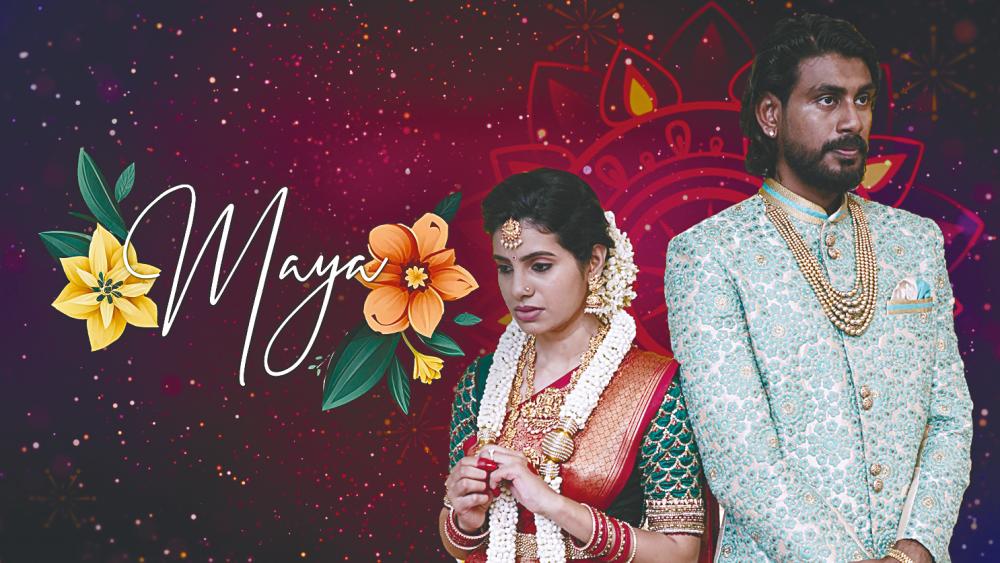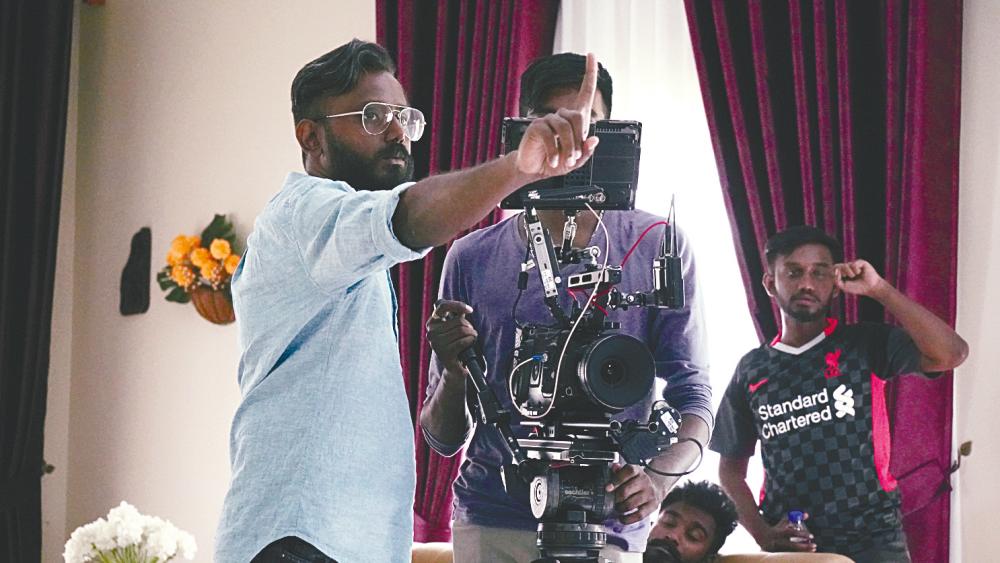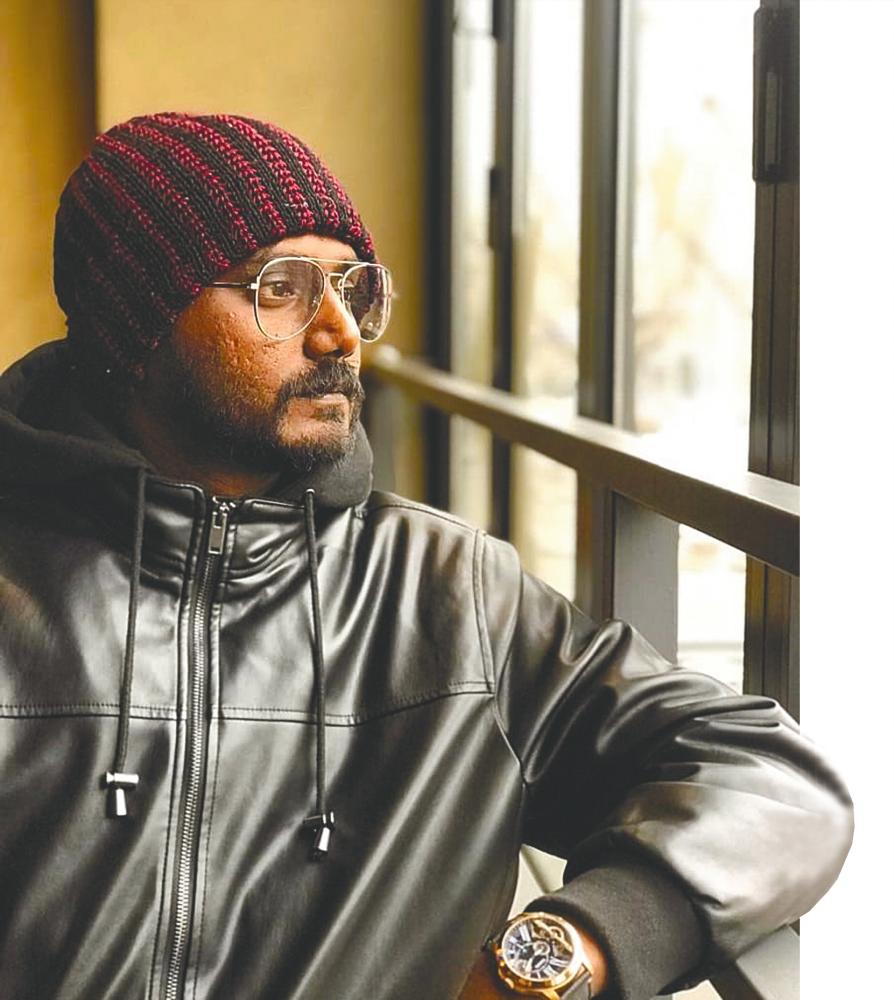DIRECTOR R. Punithan, who recently released his first telemovie, spoke about his long journey before reaching his dream to become a director. The 34-year-old joined the local film industryover a decade ago, but his dream did not materialise immediately.
He explained: “Just like many, I enjoyed watching movies growing up, and eventually, I became fascinated with the background work of producing these movies.
“I decided at a very young age that I would become a director and share my ideologies in an entertaining way.”
However, it took him some 13 years to finally reach his goal.
“Literally, I started from the bottom as an ordinary crew member in 2010 and went up the ladder while learning more about the craft from the technical crew. [I worked as a] DOP (Director of Photography), editor, sound design, line producer, story writer, and 13 years later, [made my] debut as a director for Astro,“ said Punithan.
Asked about his experiences, Punithan replied: “I wouldn’t call them struggles but challenges that pushed me to learn about my craft, since I had solved those issues, independently.”
“I had to work in various types of projects (drama, documentaries, commercials, theatre movies, and others) before I was considered credible enough to direct my movie.”
His debut television movie, Maya, is set to premiere on April 15, 2023, at 4pm on Astro Vaanavil (Ch201) in conjunction with the Tamil New Year. The film highlights the issues, compromises, and sacrifices faced by Indian brides on their journey to marriage.
Maya was also inspired by his own personal and cultural experiences.
Tell us more about Maya.
“I wanted my first movie to be an entertainer with a strong social message, hence, I wrote Maya based on my belief of how a woman should be despite the pressure and challenges thrown at her by society.”

Why did you choose to do a movie about an Indian bride?
“It’s the most common issue that every Indian family will go through before marriage. The audience will be able to relate to either the bride’s or groom’s side of the story.
“However, my perspective was on the struggle the couple faces during the wedding preparations. When pressure from unconventional and irrelevant practices is brought in by a third person (namely, relatives).
“This movie will show you how little things can pile up and break the spirit of a strong young woman. I chose the bride’s perspective to make the audience see a perspective since it’s rarely shown and to make them feel how it will be if the groom’s family exercises their full authority in wedding preparation.”
How are the characters related to your personal life?
“Firstly, I am married and I have seen my share of wedding preparations, but mainly it’s the same issues with varying intensities in different Indian families ahead of weddings that inspired me to write this story with the assistance of the writer, Sathiarupan Rajah, who further developed the characters to represent the issues I wanted to convey to the audience.
“We did some interviews and research related to this topic and found interesting details to share. On top of it, the lead actors, Hamsni Perumal, and Vicky Rao made improvisations and improvements to their roles to make them much more realistic and relevant to my vision.”

Do you hope the movie will help change the way in-laws treat future brides?
“In my perspective, you can’t change anyone unless they want to. I hope my movie will help instigate the Indian community to realize what they are putting the Bride family through in the name of traditions.
“The groom’s family always has the upper hand, and there is no equality when it comes to wedding preparations. One of my main messages in this movie will be to not let a third person interfere in any decisions in the marriage and to never give up on your dreams.”
What did you want to convey through the characters or the story?
“In this story, I have [highlighted] a father’s role to represent strength and as a pillar of support for daughters and wives. The antagonistic characters represent the issues faced by the couple when it comes to their wedding, an event that will be life-changing for them but everyone else has a say in their life choices.
“Finally, Maya conveys the strength that I hope women can bring into their life without losing themselves to community or family pressures and norms.”
Is it tough for a male director to make a female-centric movie?
“As a male director, it was kind of tough ... because I needed to understand a woman’s perspective on this topic. Luckily, my wife was able to guide me on that matter.”
What is your next project?
“I am working towards directing a theatrical film soon.”









